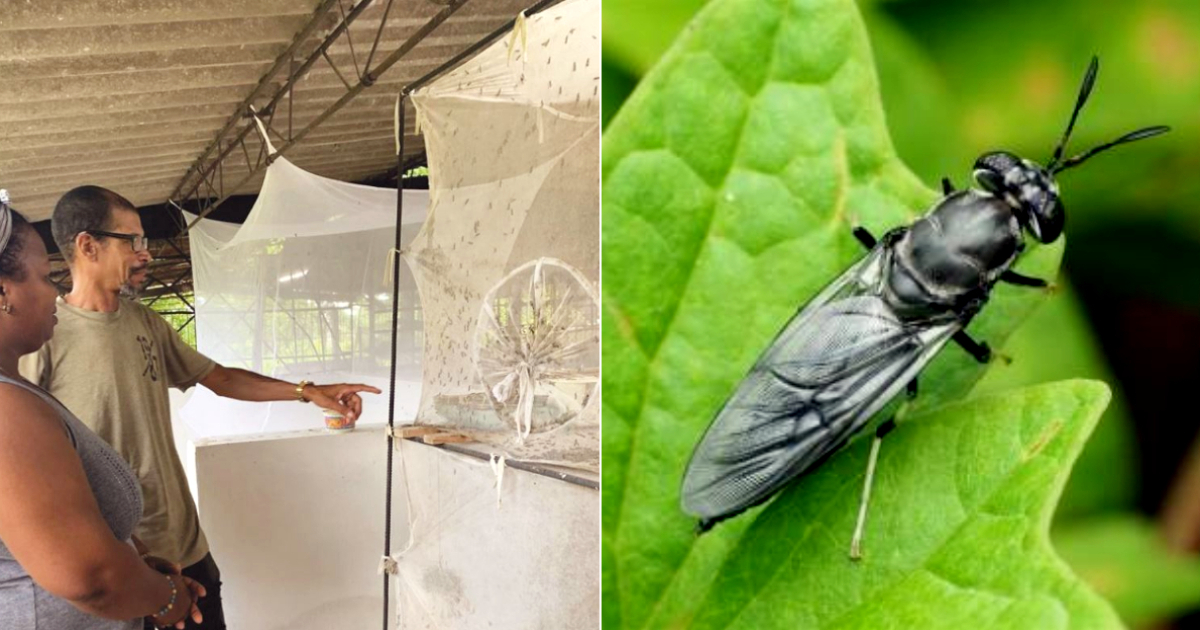In the midst of Cuba's deep economic and food crisis, the state-run media has chosen to publish an article extolling the "high nutritional potential" of the black soldier fly as a protein source for aquaculture. An article in Juventud Rebelde introduces the black soldier fly as a promising solution for food production on the island, reminiscent of past claims about the benefits of "cockroach milk."
While most Cubans struggle daily to put food on the table, the regime's media touts the supposed nutritional advantages of this insect, praising its potential in aquaculture and other applications. The headline even dubs it "an insect that seduces."
Without addressing the shortage of basic foods, the lack of agricultural supplies, and the government's failure to implement effective policies to resolve the food crisis affecting millions of Cubans, the regime's propaganda machine highlights the experience of two Cuban entrepreneurs aiming to make a name for themselves as black soldier fly breeders.
The article enthusiastically notes that one gram of these fly's eggs can produce up to four kilograms of larvae, boasting a protein content ranging from 38 to 46 percent, ideal for animal feed, especially for fish.
It is alarming that the regime's propagandists attempt to present the black soldier fly as a viable solution in a country where even governmental aquaculture plans have failed to materialize. More than alarming, it is offensive to discuss fly larvae breeding in a nation where technological and material resources are scarce, and where inadequate infrastructure prevents such projects from scaling up.
More than offensive, it is painful that the state-run media tries to divert attention to such questionable initiatives as breeding flies for animal consumption instead of addressing the humanitarian crisis caused by the government's inefficiency and failure to ensure the population's access to basic foods.
While the virtues of the black soldier fly are being praised, the underlying structural problems of Cuba's food crisis remain unaddressed. The lack of a realistic and sustainable plan to increase food production on the island is exacerbated by official propaganda that prefers to focus on exotic initiatives rather than the urgent economic solutions that Cubans desperately need.
Understanding the Black Soldier Fly Debate in Cuba
In light of the recent focus on the black soldier fly as a potential solution for Cuba's food crisis, here are some frequently asked questions and their answers to provide more context.
What is the nutritional potential of the black soldier fly?
The black soldier fly larvae have a protein content ranging from 38 to 46 percent, making them ideal for animal feed, particularly in aquaculture.
Why is the Cuban government promoting this insect?
The Cuban government is promoting the black soldier fly as a potential solution to the island's food production issues, despite the broader economic and agricultural challenges.
Are there any practical challenges to implementing this solution?
Yes, there are significant challenges, including a lack of technological and material resources, inadequate infrastructure, and the failure of previous governmental aquaculture plans.
